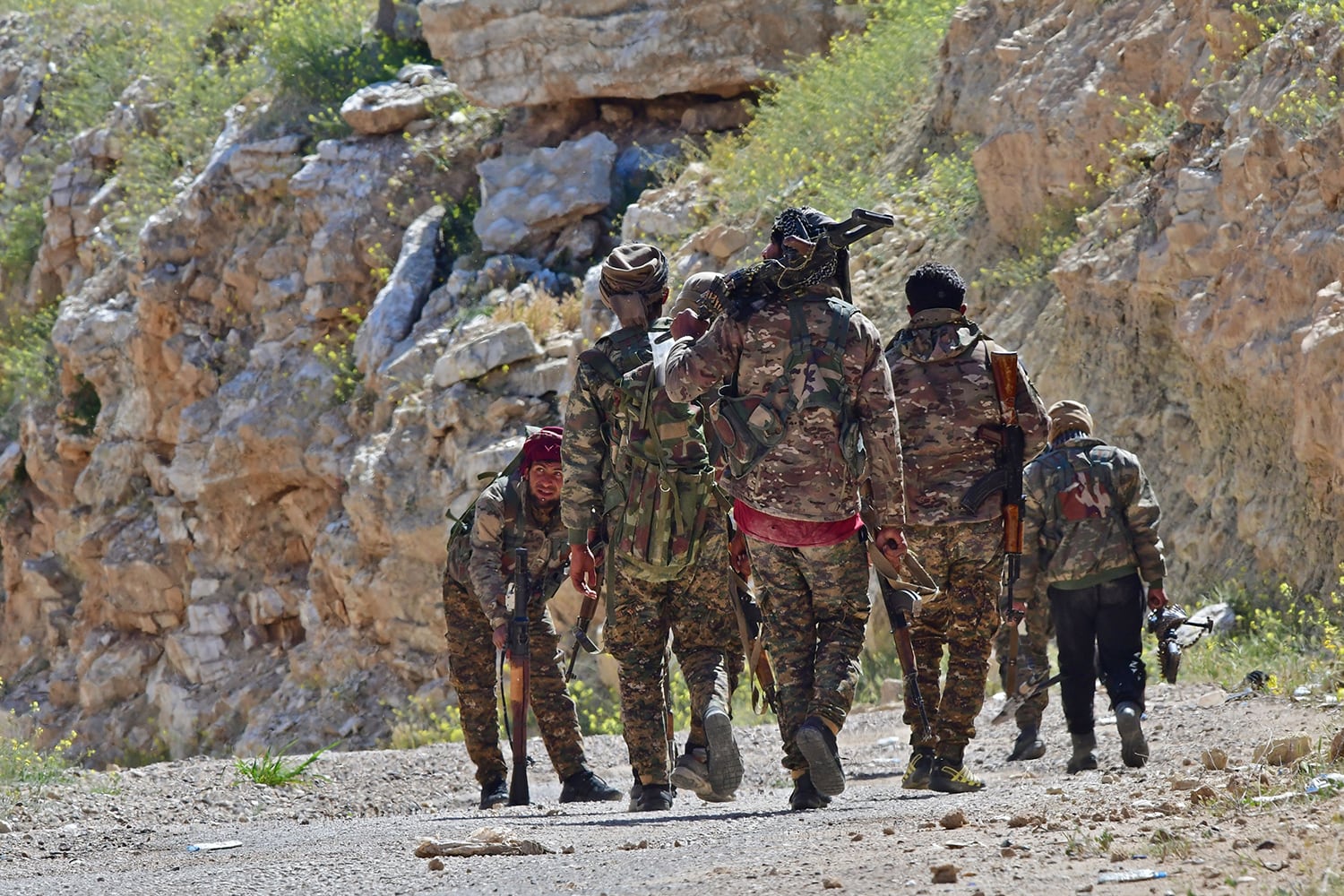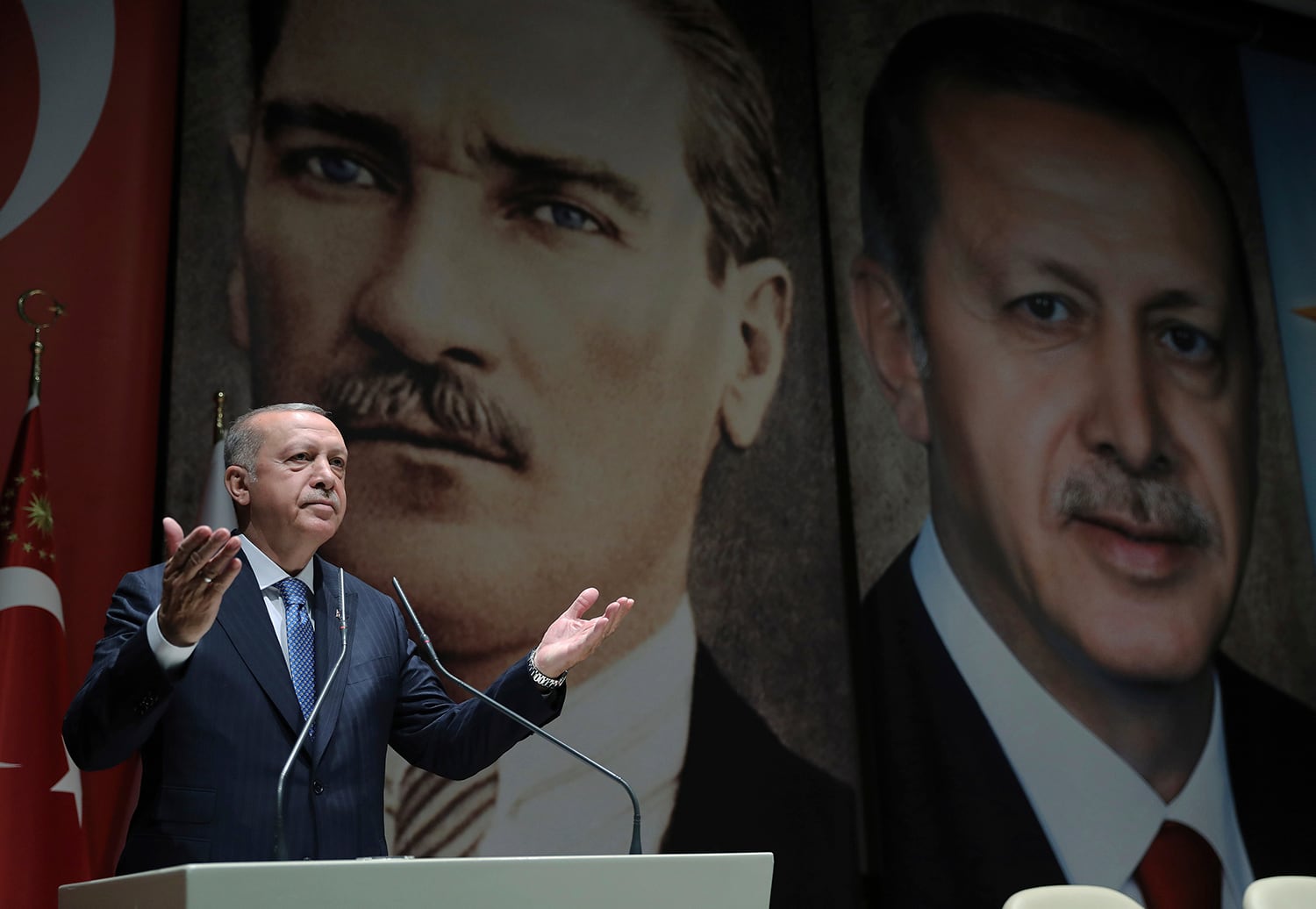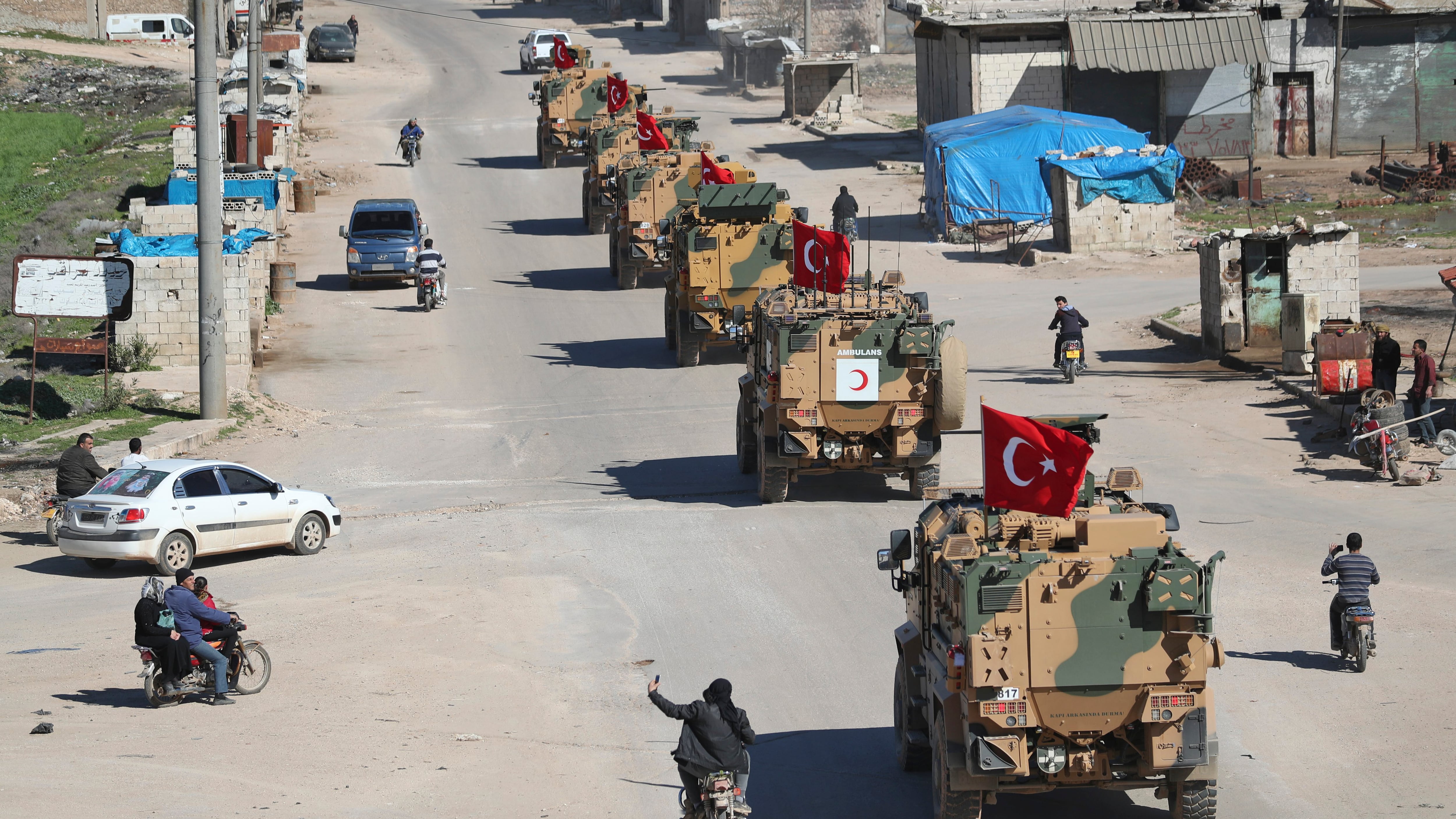BEIRUT — Turkey and the United States appeared Wednesday to be edging closer toward setting up a so-called safe zone in northeast Syria, saying they had agreed to form a joint operations center to coordinate and manage its establishment.
The vague announcement issued at the end of three days of Turkish-U.S. talks in Ankara also appeared to avert — for now— a possible new Turkish incursion into Syria.
Meanwhile, Syrian government forces captured two northwestern villages in an intensified offensive on the last rebel-held part of the country, inching closer to the town of Kfar Zeita, which has been held by insurgents since 2012, according to opposition activists and state media.
Turkish and U.S. officials issued a statement in which they said they will set up "as soon as possible" a joint operations center that would be based in Turkey.
RELATED

Turkey has been pressing to control — in coordination with the U.S. — a 19-25 mile (30-40 kilometer) deep zone within Syria, running east of the Euphrates River all the way to the border with Iraq. It wants the region to be cleared of Syrian Kurdish forces and has threatened on numerous occasions to launch a new operation in Syria against Syrian Kurdish forces if a safe zone is not established.
Turkey sees the Syrian Kurdish fighters, who make up the majority of the Syrian Democratic Forces and are allied with the U.S., as terrorists aligned with a Kurdish insurgency within Turkey. American troops are stationed in northeast Syria, along with the Kurdish forces, and have fought the Islamic State group together. The differing positions on the Kurdish fighters have become a major source of tension between NATO allies Turkey and the U.S.
The statement — issued by Turkey's Defense Ministry in Turkish and by the U.S. Embassy in Turkey in English — said the sides also agreed on the rapid implementation of measures addressing Turkey's security concerns in an apparent reference to Turkey's unease over the presence of Syrian Kurdish fighters, although it did not say if the region would be cleared of the Kurdish fighters.
RELATED

The statement also did not provide further detail on plans for the safe zone but said the sides agreed the area would become a "corridor of peace" and that additional measures would be taken to ensure displaced Syrians' return to their country.
Turkish President Recep Tayyip Erdogan hailed the decision to form a joint operations center as a first step toward the creation of the so-called safe zone.
"It was important that a step be taken east of the Euphrates (river) and this is being taken together with the U.S.," Erdogan told reporters in Ankara during a joint news conference with the Ukrainian president. "With the creation of the operations center, the process will begin."
Earlier, Turkey's Defense Minister Hulusi Akar reiterated threats to attack Syria's northeast region to push back the Syrian Kurdish forces if no agreement was reached on the safe zone, heralding potential new escalations in Syria's civil war, now in its ninth year. Akar has also said, however, that the American officials' views were "moving closer" to Turkey's.
In Syria, government forces first captured the village of Arbaeen overnight, then nearby Zakat early in the morning as part of their offensive on Idlib province, the last remaining major rebel stronghold in Syria. The developments were reported by the government-controlled Syrian Central Military Media and the Britain-based Syrian Observatory for Human Rights, an opposition war monitoring group.
Earlier this week, the Syrian army announced it was resuming an offensive on the rebel-held northwest, accusing insurgents of violating the latest truce there. If the army keeps pushing into the northwest, Syrian forces could get in contact with Turkish troops that man 12 observation posts along the border of Idlib. The closest Turkish point is in Morek, about 12 kilometers (7.5 miles) east of Zakat.
RELATED

Syrian troops have been attacking Idlib and a stretch of land around it controlled by insurgents since April 30. The three-month campaign of airstrikes and shelling has displaced some 400,000 people and left more than 2,000 others dead on both sides.
Zakat and Arbaeen were controlled by Jaish al-Izza, one of the main rebel groups in northern parts of the central province of Hama.
The Observatory said "regime forces are at the gates" of Kfar Zeita, adding that fighting in the two villages killed 18 insurgents and 10 pro-government troops.
Kfar Zeita is one of the largest towns in the northern part of Hama province and lies on the edge of Idlib, which is home to some 3 million people, many of them internally displaced by fighting elsewhere in Syria. Kfar Zeita and the nearby town of Latamneh appear to be the main targets of the latest government offensive.
New York-based Human Rights Watch reported in 2014 it has strong evidence that Syrian army helicopters dropped bombs carrying chlorine gas on three rebel-held towns, including Kfar Zeita.
Also on Wednesday, Syrian state news agency SANA reported that a car bomb exploded in the SDF-controlled northern village of Qahtaniyeh, killing several people and wounding others.
Fraser reported from Ankara, Turkey. Associated Press writer Albert Aji in Damascus, Syria contributed to this report.




